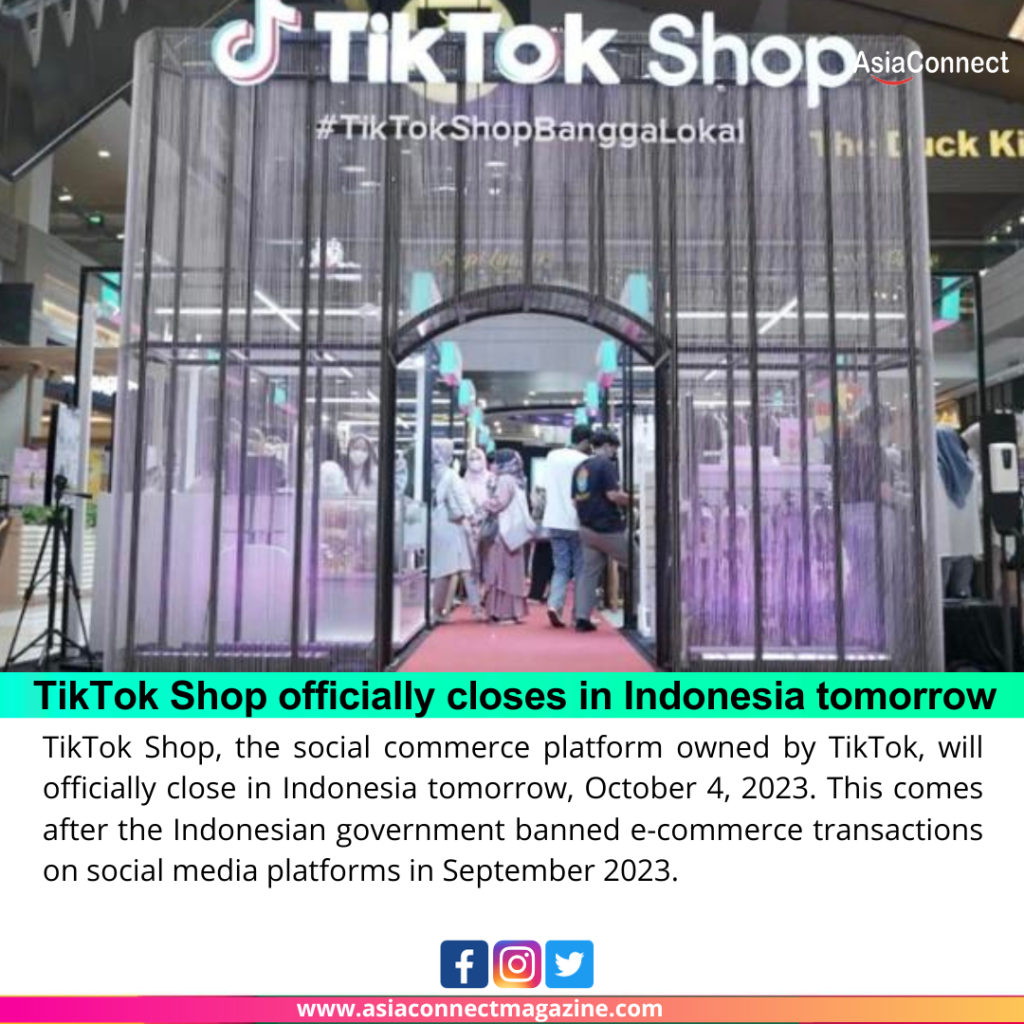
TikTok Shop, the social commerce platform owned by TikTok, will officially close in Indonesia tomorrow, October 4, 2023. This comes after the Indonesian government banned e-commerce transactions on social media platforms in September 2023.
The ban was imposed in order to protect offline merchants and marketplaces, and to prevent predatory pricing on social media platforms. The government also expressed concerns about data protection and the potential for social media platforms to be used to spread misinformation and scams.
TikTok Shop launched in Indonesia in April 2021, and quickly became one of the most popular e-commerce platforms in the country. The platform was particularly popular among young people, who were drawn to its user-friendly interface and wide range of products.
However, the platform was also criticized for its lack of regulation and for its role in promoting counterfeit goods. In addition, there were concerns about the safety of TikTok Shop’s payment system and the privacy of its users’ data.
The closure of TikTok Shop is a major setback for the social commerce industry in Indonesia. TikTok Shop was one of the largest social commerce platforms in the country, and it played a major role in driving online sales. The closure of the platform is likely to have a negative impact on both sellers and buyers.
For sellers, the closure of TikTok Shop means that they will lose a valuable sales channel. TikTok Shop was particularly important for small businesses, which often do not have the resources to invest in their own e-commerce platforms.
For buyers, the closure of TikTok Shop means that they will have fewer options for shopping online. TikTok Shop was a popular platform for buying a wide range of products, including clothes, electronics, and home goods.
The closure of TikTok Shop is also a reminder of the challenges that social commerce platforms face. Social commerce platforms offer a number of advantages, such as convenience and user-friendliness. However, they also face a number of challenges, such as regulation, data protection, and misinformation.
It is important for social commerce platforms to address these challenges in order to ensure their long-term success. Social commerce platforms need to work with governments to develop regulations that protect consumers and sellers. They also need to invest in data protection and security measures. Finally, they need to take steps to combat misinformation and scams.
Despite the challenges, social commerce is a growing industry with a lot of potential. Social commerce platforms offer a unique way for businesses to reach consumers and for consumers to shop online. As social commerce platforms continue to develop and mature, they are likely to play an increasingly important role in the global e-commerce landscape.




